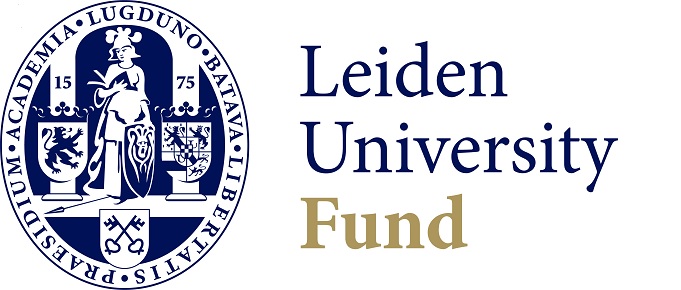
Leiden University ‘writer in residence’ Maxim Osipov on leaving Russia
Since criticising the war in Ukraine, Russian author and cardiologist Maxim Osipov has fled Russia. He has won various literary prizes in Russia and his work has had a very positive reception in the Netherlands and the rest of Europe. This September, he will be Leiden University’s writer in residence and teach a course on Russian literature for a year. He will receive assistance from the Leiden University Fund’s Scholars at Risk Fund.
On the train to Berlin
Osipov spent three months in Berlin after leaving Tarusa in Russia. In spring, he wrote about his journey for news outlets like The Atlantic (and the Dutch Volkskrant). The journey took him from his hometown of Tarusa to Yerevan, the capital of Armenia, where Russians can go without a visa.
On his Facebook page, he writes extensively about his stay and the train journey to Berlin:
‘On the train to Berlin, there are many refugees from Ukraine, almost exclusively women and children. They speak neither English nor German and are grateful for any help or accommodation: a compartment with children’s toys, restrooms, Internet connection. “Are you from Ukraine or…” – a pause – “…or have you lived here for a while?” They don’t wish to pronounce the name of your country – the aggressor, a terrorist state, which is the cause of their endless suffering. I’ve been in Germany for less than two weeks, but I already know that I will probably have to listen to pronouncements about good and bad Russians for the rest of my days and that the coming months and years will require, first and foremost, humility, a quality I do not possess in abundance. It is in this condition that I arrive in Berlin – a newly minted émigré with an overburdened conscience.’ (Facebook, Maxim Osipov)
Life in a totalitarian state
Prominent Russian authors – and perhaps other artists – leaving Russia may affect the depiction of Russian culture and society in stories. Especially in Russian literature, a genre that has a long history of critiquing the Russian status quo. ‘I’m sure Russian authors leaving changes the picture we see,’ says Osipov. ‘It’s almost been six months, and there are quite some people leaving. Unfortunately it’s not that easy to go. Some people have elderly parents or other obligations, and it costs a lot of money.’
He doesn’t quite know what’s been going on in his home country since he left, but the news isn’t good. The authorities in Moscow and St Petersburg are trying to make it seem like nothing is happening, something Osipov finds threatening. Now he is away from Russia, he at least feels free to speak and write down his thoughts. This was one of the reasons why he left. ‘First I spent my life during a period of socialism; now they offer me this life in a – whatever you want to call it – fascist, totalitarian state. I just don’t want to live that life. Not only is the government interested in what you’re saying or doing, but it also tries to keep tabs on what you’re thinking. It’s unacceptable. As a writer in that scenario I’d have to write books under a different set of rules, play games I don’t want to play,’ he says.
It’s too early still to reflect on the war’s effect on the cultural industry, authors, poets and playwrights. ‘All of us hoping for the defeat of the Russian army and government and the prevalence of Ukraine could help set the tone,’ Osipov says. Perhaps it will fuel a new burst of talent, of authors writing about imperialist societies.

Feeling at home in a new city
After his time in Germany, Osipov is looking forward to his stay in the Netherlands. ‘It’s my favourite country in the world. I spent last November in Amsterdam, at the invitation of the Dutch Literary Fund. A very interesting experience. I love the neighbourhood, the people.’
He does miss certain places in Russia. His house in Tarusa, which he built with his mother: a house that’s alive with memories. He misses his parents’ graves and his friends. But not the city: Osipov could feel at home anywhere as long as the people are good and he’s able to work. He hopes the move to Amsterdam will give him new energy to write.
On his Facebook page:
‘“You’re like those anti-fascist Germans who ended up outside Germany with a German passport in their hands. They too were seen as citizens of a hostile country.” So says Barbara, the Rector, and my anxiety about having to explain the same thing to everyone, over and over again, completely vanishes.’ (Facebook, Maxim Osipov)
Osipov's second collection 'Kilometer 101' will come out in October. The literature course in Leiden will include works by authors like Pushkin, Gogol, Chekhov, Tolstoy, Nabokov and Dostoyevsky. Maxim Osipov is looking forward to teaching it.
Maxim Osipov will receive assistance from the Leiden University Fund’s Scholars at Risk Fund.
‘Scholars all around the world are threatened because of their work, ideas or critical questions. The Scholars at Risk Fund was established in 2014 and provides temporary shelter for scholars in need. They can thus continue to work or study in a safe environment.’
If you would like to set up a named fund or contribute to an existing one, please contact Eliane Cohen for more information at e.c.cohen@luf.leidenuniv.nl.
